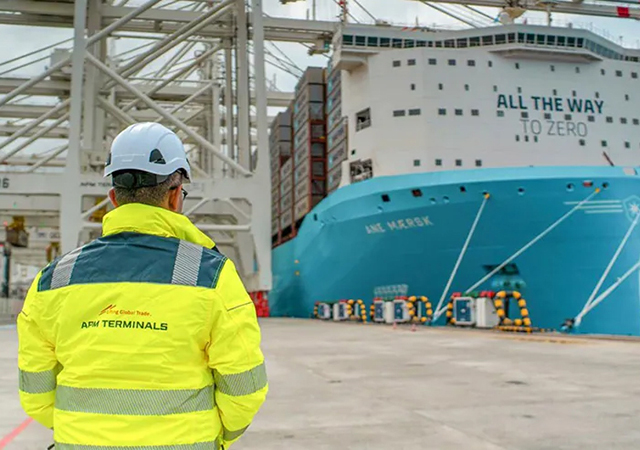
 Gemini's hubs enable 90% reliability for its 2025 ocean network
Gemini's hubs enable 90% reliability for its 2025 ocean network
As the Gemini Cooperation prepares to launch its ambitious new ocean transportation network in February 2025, key to achieving its goal of over 90 per cent schedule reliability are the network of hubs that will connect its 58 services and over 6,000 port-to-port routes.
The Gemini Cooperation, a partnership between shipping giants Maersk and Hapag-Lloyd, is working to deliver a best-in-class ocean network with industry-leading reliability, reach, and speed. At the heart of this new network will be a carefully selected set of port terminals that will serve as high-performing hubs.
"The hubs will ensure smooth and seamless connections between our services," explains Kenni Skotte, Head of Ocean Network Product at Maersk. "Centering our network around hubs owned and controlled by Maersk or our partner means we will have more control over the operational management of the hubs. It also means we can invest in world-class systems and processes to ensure they perform to the highest level and deliver the reliability and speed necessary for our new network."
The key hubs have been selected for their consistently high levels of dependability and productivity, which will be critical in enabling the efficient flow of cargo and minimising disruptions across the network. These hubs will allow transportation routes to be optimised, ensuring goods reach distant destinations as efficiently as possible.
WORLD-CLASS TERMINAL CAPABILITIES
Eight of the hubs for the Gemini Cooperation network will be owned and operated by APM Terminals, a Maersk Group company. These include facilities in Rotterdam, Bremerhaven, Algeciras, Tangier, Port Said, Salalah, and Tanjung Pelepas.
"APM Terminals is pleased to serve the Gemini Cooperation with a substantial part of our terminal portfolio," says Lars Mikael Jensen, Head of Hubs and Collaboration at APM Terminals. "We excel in high productivity and reliability. This has earned us a position at the forefront of our industry and instills confidence in our ability to support Maersk and Hapag-Lloyd in delivering on their ambitions."
In the past two years, APM Terminals has made significant investments to improve the performance of its global terminal network, resulting in a 15-20 per cent reduction in average vessel stay times. And the company is continuing to make further enhancements to drive even greater efficiency.
To handle the increased volumes and service levels required by the new Gemini Cooperation network, APM Terminals is expanding the capacity of the designated hubs by 30 per cent. This will result in a combined 19 kilometers of berth and over 200 cranes across the hubs.
LEVERAGING ADVANCED TECHNOLOGY
Advanced technologies are playing a key role in optimising the performance and reliability of the Gemini Cooperation hubs. APM Terminals has been investing heavily in digital assets and capabilities, including Internet of Things (IoT) sensors, digital twins, and AI-powered optimisation tools.
IoT sensors have been installed on over 2,500 pieces of terminal equipment, providing real-time visibility into asset performance. This allows the terminals to quickly detect and respond to any operational exceptions, boosting reliability.
Four of the APM Terminals hubs – Tangier, Salalah, Algeciras, and Port Said – already utilise digital twins, which create a virtual representation of the physical terminal. Digital twins use real-time and historical data, as well as machine learning, to model the terminal's operations and predict future states. This allows the terminals to be stress tested in a safe, virtual environment, so that plans and investments can be made to avoid real-world disruptions.
APM Terminals also leverages AI-powered tools for critical functions like berth planning and yard optimisation. By testing different processes and layouts, the terminals can choose the most effective approach to ensure reliable service delivery.
RELIABLE, EFFICIENT, AND FLEXIBLE
By anchoring the Gemini Cooperation's new network around this hub-centric model, Maersk and Hapag-Lloyd are positioning themselves to achieve their goal of over 90 per cent schedule reliability. The carefully selected hubs, with their world-class capabilities and advanced technologies, will be essential in enabling smooth, seamless connections between services and optimising cargo flows.
With the Gemini Cooperation's network centered around these high-performing, technology-enabled hubs, shippers can expect to see improved schedule reliability, competitive transit times, and expanded global coverage – all of which will be critical in navigating today's complex and disruption-prone supply chains.

